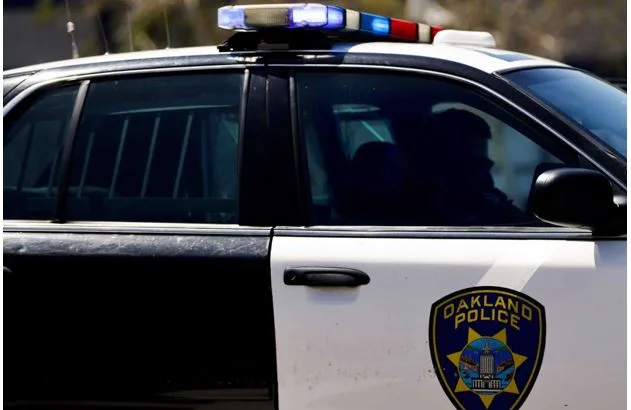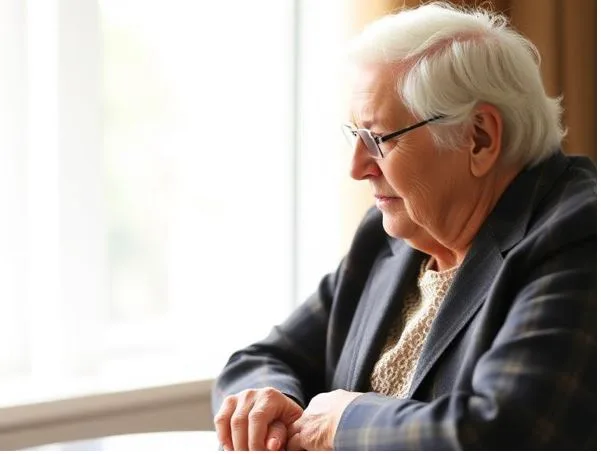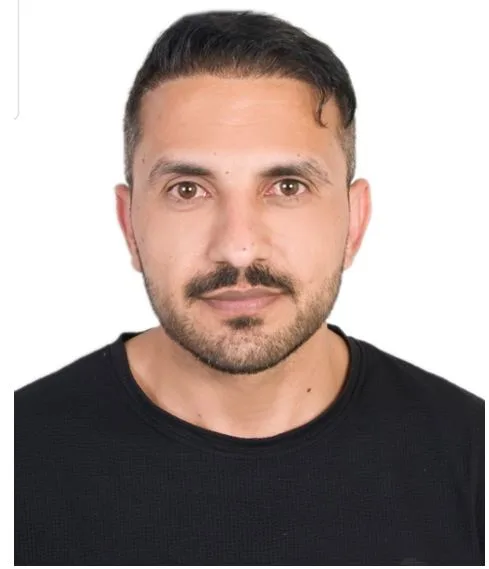The OPD’s Pattern of Abuse: How Law Enforcement Fails Oakland’s Communities
In a city that boasts a rich cultural heritage and a vibrant community spirit, Oakland finds itself ensnared in a web of systemic injustices perpetrated by its own law enforcement agency—the Oakland Police Department (OPD). The OPD has garnered a reputation not as a protector of citizens, but as a perpetrator of abuse, corruption, and systemic failure. This article explores the disturbing pattern of misconduct and abuse within the OPD, shedding light on how law enforcement has consistently failed the very communities it is sworn to protect.
A History of Distrust
The roots of distrust between the OPD and Oakland’s marginalized communities run deep. For decades, residents have faced police brutality, racial profiling, and a lack of accountability from the very institution meant to ensure their safety. High-profile cases of police violence have repeatedly surfaced, leaving scars on the community and deepening the rift between law enforcement and the public. This distrust is not unfounded; it is born from a long history of oppression, where communities of color have been disproportionately targeted and victimized by police tactics.
The OPD’s troubling legacy is punctuated by a staggering number of leadership changes—12 police chiefs in the last 15 years. This instability reflects a department that has been unable to address its internal problems effectively. The frequency of these changes raises critical questions about the OPD’s accountability and its ability to enact meaningful reforms.
The FBI Investigation: A Warning Sign
The situation has reached a boiling point, with the FBI opening a criminal investigation into the OPD in July 2024. This investigation comes on the heels of mounting evidence of corruption and misconduct within the department. The FBI’s involvement is not merely a procedural formality; it signifies a serious reckoning for an agency plagued by malpractice.
One glaring example of this malpractice is the internal investigation that revealed a detective accused of bribing a witness in a murder case. This scandal exposed the OPD’s troubling practices, including the use of unrecorded cash payments to witnesses—a practice reminiscent of the infamous Riders scandal that rocked the department in the early 2000s. The Riders scandal was a dark chapter in OPD history, where officers engaged in drug planting, excessive force, and other abuses, primarily targeting Black men. These incidents are not isolated; they represent a pattern of behavior that has permeated the OPD for far too long.
The Case of Richard Alvarez: A Microcosm of OPD Misconduct
To understand the depths of the OPD’s dysfunction, we can examine the case of Officer Richard Alvarez, who was fired for engaging in sexual conduct with a mentally ill person he had previously detained. This egregious breach of trust is emblematic of a culture that allows officers to exploit their positions without fear of repercussions. Alvarez’s actions demonstrate a blatant disregard for the vulnerable individuals he was meant to protect, reflecting the broader issues of accountability and oversight within the OPD.
Alvarez’s case is a stark reminder of how the OPD has consistently failed marginalized communities. The lack of accountability for officers engaging in misconduct fosters an environment where abuse can flourish. This culture of impunity not only erodes community trust but also puts vulnerable individuals at risk.
Targeting Marginalized Communities
Instead of focusing on addressing crime and ensuring public safety, the OPD has directed its resources toward targeting marginalized communities and organizations that are working to uplift them. One glaring example of this misallocation of resources is the aggressive investigation into the Ritual Church of Community Ceremony, a minority-run spiritual organization providing healing services to veterans and marginalized individuals.
On May 20, 2024, the OPD, aided by U.S. Marshals, raided the church’s penthouse, seizing sacred sacraments used in their spiritual practices. This intrusive action not only undermined the church’s mission but also sent a chilling message to community members seeking alternative healing modalities. Rather than addressing pressing issues like violent crime and homelessness, the OPD chose to focus on criminalizing spiritual practices that have been shown to benefit those in need.
The Case of Hafid Alrowhani: Justice Denied
The case of Hafid Alrowhani further exemplifies the OPD’s failure to serve its communities. Convicted of assault with a deadly weapon after a violent attack that nearly severed the ear of his victim, Alrowhani was ordered to pay $21,000 in restitution. Despite the severity of his crime, he was allowed to serve his sentence on an ankle monitor, enabling him to continue operating his liquor store in West Oakland. This leniency raises significant questions about the priorities of the justice system and how it treats marginalized individuals versus perpetrators of violence.
Alrowhani’s case highlights a troubling disparity in how justice is administered in Oakland. While marginalized individuals face harsh penalties for minor offenses, perpetrators like Alrowhani often receive leniency. This inconsistency in sentencing serves to deepen the divide between communities of color and those in positions of power within the justice system.
The OPD’s Misguided Investigations
Instead of focusing on real crime, the OPD has prioritized misguided investigations that target community leaders and activists. The case of Sabian Carabello, a respected community entrepreneur, illustrates the reckless nature of these investigations. Alrowhani made unfounded allegations against Carabello, claiming he was attacked and robbed. Despite the lack of evidence—no witnesses or surveillance footage—the OPD launched a full-scale investigation, raiding Carabello’s penthouse and seizing mushroom sacraments that he uses for his community-based initiatives.
The absurdity of this situation is further amplified by the fact that Alrowhani’s claims were based purely on his word—a word that holds far more weight than that of a successful Black entrepreneur. The OPD was so eager to act on Alrowhani’s allegations that they overlooked glaring evidence that contradicted his story, ultimately revealing a dangerous bias against marginalized individuals in favor of a violent immigrant.
The Racial Bias Within the OPD
The OPD’s pattern of abuse is inextricably linked to systemic racial bias. Communities of color, particularly Black and Brown residents, are disproportionately targeted by police practices that prioritize surveillance and criminalization over community engagement and support. The historical context of racial injustice in Oakland further complicates these dynamics, as marginalized communities are often subjected to heightened scrutiny and surveillance.
The systemic inequities in the justice system are compounded by the socio-economic factors that plague marginalized communities. High rates of poverty, unemployment, and lack of access to quality education create an environment in which individuals are more likely to encounter law enforcement. This reality perpetuates a cycle of criminalization that is difficult to escape, as individuals from marginalized backgrounds are often trapped in a system that seems designed to punish rather than rehabilitate.
The Need for Reform and Accountability
The urgent need for reform within the OPD cannot be overstated. As the city grapples with these systemic issues, community leaders and activists are calling for accountability and transparency in law enforcement practices. The time has come for a comprehensive review of the policies and practices that govern the OPD, with a focus on dismantling the systemic biases that perpetuate racial injustice.
Moreover, there must be a concerted effort to foster community engagement and rebuild trust between law enforcement and the communities they serve. Initiatives aimed at increasing transparency and accountability can help restore faith in the justice system, but these efforts must be rooted in genuine collaboration with marginalized communities.
A Call to Action
As Oakland stands at a critical juncture, it is imperative that residents, community leaders, and policymakers unite in the fight for justice and equity. The systemic failures of the OPD cannot continue unchecked. It is time for a comprehensive overhaul of the justice system, one that prioritizes the needs and rights of marginalized communities.
This call to action must be accompanied by a commitment to addressing the underlying socio-economic factors that contribute to crime and violence in Oakland. By investing in community resources, education, and mental health services, the city can begin to break the cycle of criminalization and create a more just and equitable society.
Conclusion: A Vision for Justice
The journey toward justice in Oakland is fraught with challenges, but it is also filled with hope. The voices of marginalized communities must be amplified, and their needs prioritized in the ongoing struggle for justice. By confronting the systemic injustices perpetrated by the OPD, Oakland can begin to chart a new path forward—one that honors the dignity and humanity of all its residents.
As we work toward this vision of justice, let us remember that true progress is only achieved when every voice is heard, and every individual is treated with respect and fairness. The fight against the OPD’s pattern of abuse is not just a struggle for one community; it is a fight for the soul of Oakland and an opportunity to reshape the narrative of justice in America. The time for change is now, and it begins with each of us demanding better from those in power. Together, we can build a more just and equitable Oakland, where the rights and dignity of all individuals are upheld and respected.






